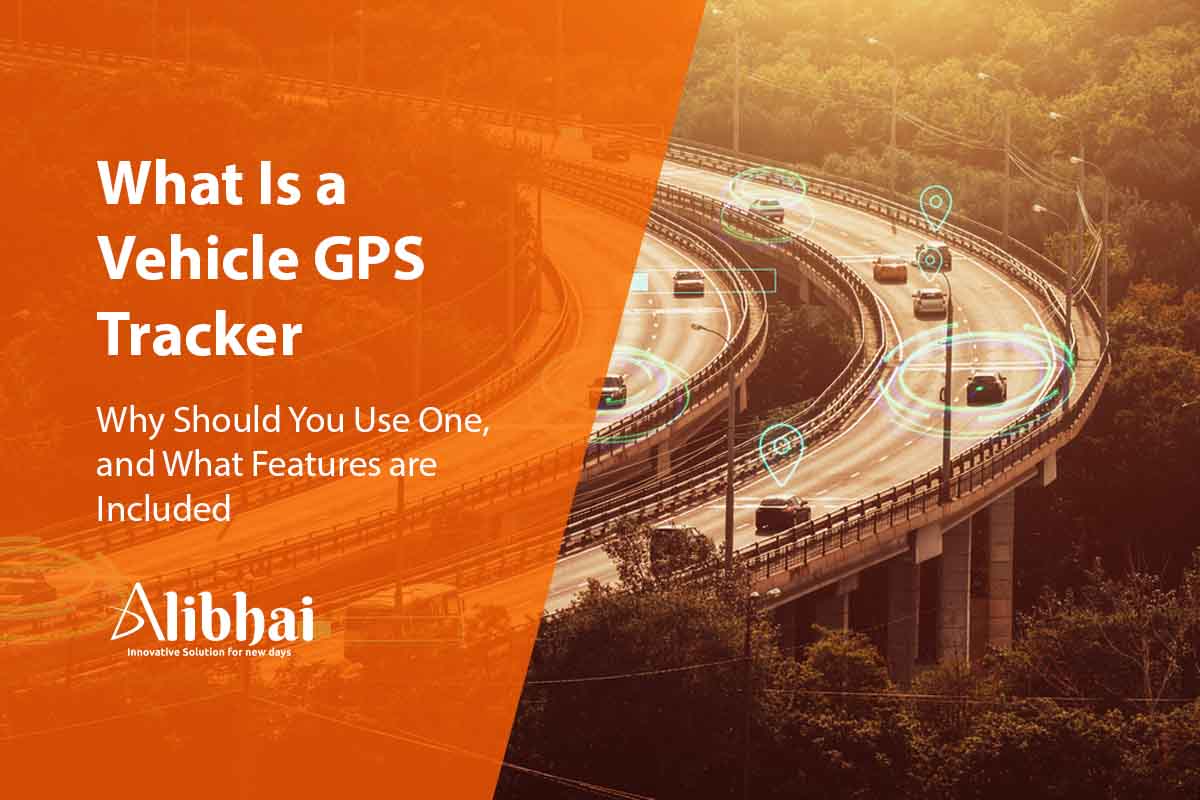Sales: +8801742060010
What Is Vehicle Tracking Systems?

In today’s rapidly advancing technological landscape, vehicle tracking systems have emerged as a pivotal tool for optimizing fleet management, ensuring security, and enhancing operational efficiency. From commercial fleets to personal vehicles, the integration of GPS-based tracking systems has revolutionized the way vehicles are monitored, managed, and secured.
Evolution of Vehicle Tracking Systems
A Vehicle Tracking System (VTS) is a technology used to determine the precise location of a vehicle, typically using GPS technology. It comprises hardware and software components that work together to provide real-time and historical location data.
Factors to Consider When Choosing a VTS
- Enhanced Security
Safety is paramount, and a Vehicle Tracking System can provide an added layer of security for your vehicles. In the unfortunate event of theft, you can quickly track the location of your vehicle and relay that information to the authorities, increasing the chances of recovery.
- Theft Prevention
The mere presence of a visible GPS tracker can deter potential thieves. The knowledge that a vehicle can be tracked in real-time significantly reduces the likelihood of theft, making it a cost-effective security measure.
- Fleet Management
For businesses with a fleet of Vehicle Tracking System, GPS trackers are indispensable tools for optimizing operations. You can monitor your vehicles’ routes, fuel consumption, and driver behavior, leading to improved efficiency, reduced costs, and better customer service.
- Personal Safety
Personal vehicle owners can benefit from GPS trackers by ensuring the safety of family members or loved ones who are driving. You can track the location of the vehicle they are using and receive alerts in case of emergencies.
- Geofencing
GPS trackers allow you to set up geofences, which are virtual boundaries that trigger notifications when a vehicle enters or exits a designated area. This feature is particularly useful for parents, business owners, or anyone interested in tracking specific locations.
- Reduced Insurance Costs
Many insurance companies offer discounts to vehicle owners who install GPS trackers. These devices can help recover stolen vehicles quickly, reducing the risk for insurance providers and potentially lowering premiums.
- Maintenance Alerts
Some advanced Vehicle Tracking System can monitor vehicle diagnostics and provide maintenance alerts. This helps vehicle owners stay on top of routine maintenance, preventing costly breakdowns and extending the life of the vehicle.
Benefits of Implementing a Vehicle Tracking System
Vehicle GPS tracker service come in various models and offer a wide range of features, depending on their intended use and price range. Below are some of the key features that you should consider when choosing a GPS tracker:
- Real-Time Tracking: The most fundamental feature of a GPS tracker is real-time tracking. It allows you to monitor your vehicle’s location, speed, and direction as it moves. This feature is essential for theft recovery, route optimization, and fleet management.
- Geofencing: As mentioned earlier, geofencing allows you to define virtual boundaries. The tracker will send alerts when a vehicle enters or exits these predefined areas, enabling you to take prompt action.
- History Playback: Vehicle Tracking System stores historical data that can be reviewed at a later time. This feature is useful for analyzing past routes, verifying travel times, and understanding vehicle usage patterns.
- Mobile App and Web Platform: To access the tracker’s data, most devices are accompanied by a mobile app or web-based platform. These user-friendly interfaces provide real-time information, alerts, and historical data at your fingertips.
- SOS Alerts: In case of an emergency, some GPS trackers offer an SOS button that, when pressed, sends an immediate distress signal to predefined contacts. This can be a critical feature for personal safety.
- Battery Backup: A built-in battery backup ensures that the tracker remains operational even if the vehicle’s power source is disconnected. This is vital for anti-theft purposes.
- Speed Monitoring: Many Vehicle Tracking System offer speed monitoring, allowing you to set speed limits and receive alerts if the vehicle exceeds them. This is particularly important for parents and business owners who are concerned about the safety of their vehicles.
- Driver Behavior Analysis: Advanced trackers can provide insights into driver behavior, including harsh acceleration, braking, and cornering. This information can be used to improve driving habits and reduce maintenance costs.
- Remote Engine Cut-off: In some cases, a GPS tracker can be integrated with the vehicle’s electrical system to remotely cut off the engine in the event of theft. This feature immobilizes the vehicle until it’s recovered.
- SIM Card Compatibility: To transmit data, GPS trackers require a SIM card, just like a mobile phone. Some trackers come with a built-in SIM card, while others allow you to insert your own. It’s important to consider SIM card compatibility and data plans when choosing a tracker.
- Tamper Alerts: Tamper alerts notify you if someone attempts to remove or manipulate the GPS tracker. This feature adds an extra layer of security to your device.
- IP Rating: For trackers installed in outdoor or harsh environments, an Ingress Protection (IP) rating is essential. It indicates the device’s resistance to dust and water, ensuring its durability.
- Voice Monitoring: Some trackers have the capability to listen to the vehicle’s surroundings. This can be used for security or monitoring purposes, although it may raise privacy concerns.
- Price Range: GPS tracker prices vary based on the features they offer. While more advanced trackers tend to be more expensive, it’s important to find a balance between your needs and your budget.
Types of Vehicle Tracking Systems
1. Cellular-Based Tracking
Utilizing cellular networks, this system provides real-time tracking and is suitable for urban areas with reliable network coverage.
2. Satellite-Based Tracking
Ideal for remote areas with limited cellular coverage, satellite-based systems use GPS satellites to track vehicles globally.
3. Hybrid Systems
Combining the strengths of both cellular and satellite-based systems, hybrids offer robust tracking capabilities in diverse environments.
Assess Your Requirements
Start by understanding your specific tracking needs. Consider factors like coverage area, frequency of tracking, and the level of data detail required.
Research and Compare
Explore different VTS providers, comparing their features, customer reviews, and pricing models. This step ensures that you make an informed decision.
Request a Demo or Trial
Before committing, request a demo or trial period to test the system’s functionalities and compatibility with your operations.
Seek Recommendations
Reach out to industry peers or forums for recommendations based on their experiences with various VTS providers.
Consider Future Scalability
Choose a system that can scale with your business or personal needs, accommodating potential growth without compromising efficiency.
Ensure Customer Support
Reliable customer support is vital. Opt for a provider that offers prompt assistance and continuous support post-installation.
Power of GPS Trackers with SIM Cards
GPS trackers have revolutionized our ability to monitor and track items, people, or even our pets, providing real-time information about their whereabouts. But what makes these trackers tick? Enter the unsung hero: the SIM card.
Choosing the Right Tracker: Factors to Consider
SIM Card Compatibility
You’ve got options: some trackers come with their SIM cards already built-in, while others let you insert your preferred one. Make sure your tracker matches your SIM card’s specs to avoid any compatibility issues down the road.
Data Plans
To keep your GPS tracker communicating, you need a data plan for your SIM card. Providers offer various plans, each with its own data limits and price tags. Knowing your tracker’s data needs helps you pick the plan that suits you best.
Network Compatibility
Not all trackers play nice with every cellular network out there. Before committing, ensure your chosen GPS tracker syncs up with the networks available in your area. Frequency bands matter, especially in different regions.
Roaming Considerations
Jet-setter or frequent traveler? Keep an eye on roaming charges. Some SIM cards offer international roaming perks, but others might need local ones for each region. Choose wisely based on your travel habits.
Data Consumption
How much data your GPS tracker chomps through varies with its functions. Real-time tracking and frequent updates? They’re data-hungry. Opt for a plan that aligns with your tracking demands.
Motorcycles bring a sense of freedom on the road, but ensuring their safety is paramount. Enter GPS trackers for motorcycles, the unsung heroes safeguarding bikes worldwide. These small devices pack a punch, offering not only security but also peace of mind for riders.
What Is a GPS Tracker for Motorcycle?
At its core, a GPS tracker for motorcycles is a compact, innovative device utilizing the Global Positioning System (GPS) to pinpoint the exact location of the bike. It’s designed to provide real-time tracking, enabling owners to monitor their motorcycles remotely.
How Do GPS Trackers for Motorcycles Work?
These trackers use satellites to determine the bike’s coordinates and transmit this data to a receiver, typically a smartphone or computer. This technology ensures accurate and timely updates on the motorcycle’s whereabouts.
Why are GPS trackers essential for motorcycle safety?
- Theft Prevention: One of the primary reasons riders opt for GPS trackers is to deter theft. In cases of unauthorized movement, the tracker sends alerts, allowing owners to act swiftly.
- Real-Time Monitoring: Whether parked or in motion, these trackers offer live updates, ensuring owners stay informed about their motorcycle’s status.
- Recovery Assistance: In unfortunate scenarios of theft, the precise location provided by the tracker aids law enforcement in recovering the stolen bike.
Types of GPS Trackers for Motorcycles
There are various types of trackers available, each catering to different needs:
- Hardwired Trackers: Installed directly into the motorcycle’s electrical system, these trackers are robust and offer a continuous power supply.
- Battery-Powered Trackers: Versatile and easy to install, these trackers rely on internal batteries and are ideal for various motorcycle models.
- Disguised Trackers: Concealed within the bike’s components, these trackers are difficult for thieves to detect.
Choosing the Right GPS Tracker
When selecting a GPS tracker for your motorcycle, consider these key factors:
- Accuracy: Opt for trackers with precise GPS technology to ensure accurate location tracking.
- Battery Life: Evaluate the battery’s longevity to ensure uninterrupted service.
- Alerts and Notifications: Look for trackers that provide instant alerts for movement, geofencing, or low battery.
- Installation Ease: Consider trackers that are easy to install and fit seamlessly into your motorcycle.
The Best GPS Trackers for Motorcycles
- Spot Trace: This compact tracker offers real-time tracking, long battery life, and easy installation.
- Monimoto 7: Known for its user-friendly app interface and discreet design, it’s a top choice for many riders.
- Track 2022: A versatile and affordable option with a multitude of features, including geofencing and customizable alerts.
Vehicle Tracking System: Addressing Concerns
Addressing Common Misconceptions
Cost-Effectiveness and ROI
While the initial investment might seem substantial, the long-term benefits outweigh the costs. The return on investment (ROI) is evident through reduced fuel consumption, optimized routes, and enhanced operational efficiency.
FAQs
- How does a GPS tracking device work?
- How do vehicle tracking systems contribute to cost savings?
- How do I check for a GPS tracker on the car?
- How do I track a car with GPS for free?
- What uses GPS tracking to track vehicles?
- Are there any privacy concerns associated with vehicle tracking systems?
Final Word
Unlocking Efficiency with Technology
In conclusion, the implementation of a vehicle tracking system transcends mere fleet monitoring; it revolutionizes the way businesses operate. The amalgamation of real-time data, improved safety measures, and enhanced efficiency marks a transformative journey toward optimized logistics management.

